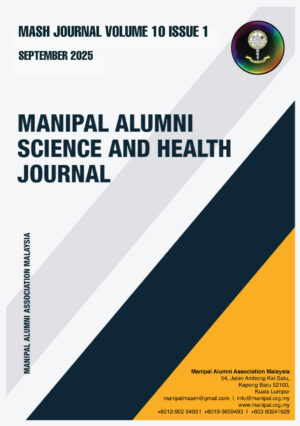
Parathyroid carcinoma is an uncommon malignancy of the endocrine system which can closely mimic as severe secondary or tertiary hyperparathyroidism in patients with chronic kidney disease. It often presents with marked hypercalcemia and significantly elevated parathyroid hormone (PTH) levels. Its diagnosis is challenging due to clinical overlap with other benign parathyroid disorders. The likelihood of an intrathyroidal location is low, estimated at approximately 0.2%, which poses a challenge for pre-operative suspicion as well as diagnosis. Fewer than 20 cases of intrathyroidal parathyroid carcinoma coexisting with end-stage renal failure have been reported in the literature. Here, we describe a case of 36-years gentleman, ECOG-0 with an End-stage renal failure (ESRF) since 20-years of age on regular dialysis with an intrathyroidal parathyroid carcinoma manage with right hemithyroidectomy. Surgical excision of a suspicious right thyroid nodule revealed parathyroid carcinoma on histopathology. This case emphasizes the diagnostic challenges and importance of considering parathyroid carcinoma in patients with refractory hyperparathyroidism in ESRF patient.
Osteoporosis is a systemic skeletal disorder characterized by low bone mass and deterioration in micro-architecture of bone tissue leading to porous bones. This can increase the fracture risk resulting in severe complications and thereby reducing quality of life. Thus, early surgical intervention following a fragility fracture is crucial in managing this condition to prevent functional disability. In addition, the initiation of secondary osteoporosis treatment is important in reducing future fractures and thereby improving bone health.
Monkeypox is a viral disease caused by the monkeypox virus, first identified in colonies of monkeys, and is closely related to the smallpox virus. Therapeutic agents and vaccines developed for smallpox may also offer efficacy against monkeypox. As a zoonotic orthopoxvirus, monkeypox has the potential for transmission between humans and other mammals. According to recent reports, 136 cases of monkeypox virus infection were documented across 15 countries between May 11 and October 4, 2022. Currently, monkeypox is not entirely curable. This review briefly outlines the monkeypox virus, its epidemiology, and the vaccines available for the prevention and treatment of the disease.
Methanol poisoning in Malaysia still occurs despite efforts to trace the source and curtail the illegal production of alcohol. In 2021, laboratory surveillance alerted an outbreak in Penang, Malaysia. Our aim was to describe the outbreak, identify the source and take control measures. We conducted interviews on cases and contacts and actively searched for cases. We targeted the area with the cases and focused on the migrant laborers. Laboratory investigations were carried out at the hospital. Seized alcohol brands were assessed for methanol and compliance with the Malaysian Food Act 1983. We observed the living and working conditions of cases. Descriptive analysis was reported in frequency and percentage. There were 31 cases with 21(67.7%) deaths, all male, all foreigners from a neighboring country and with a median age of 35 years (IQR 9). They were low-skilled workers (18, 58.1%) or unemployed (6, 19.4%). Mean serum methanol for the cases that survived or died was 30.6mm/L and 87.5mm/L respectively. Mean urine methanol in those who died (107.5) was significantly higher than those who survived (38.6, p =0.046). Empty bottles and suspected distilling equipment were found in the area. Among the non-compliance were lack of labeling, absence of importer details on the label of bottles, and the outlets did not have a license to sell alcohol. One (8.3%) alcohol brand had methanol level of 38600mg/L. Evidence points to this outbreak being due to illegal production and noncompliance. All cases had high serum methanol. One alcohol sample had high methanol. Drinking alcohol is culturally acceptable amongst these nationals. Local production reduces costs, but it comes with its risk, and this is constantly communicated to employers who hire unskilled foreign labor.
